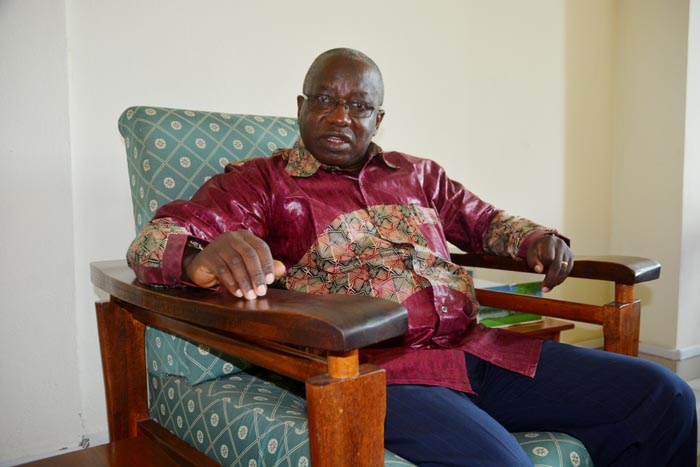The Burundian Government and the InternationalFund for Agricultural Development (IFAD) signed a grant of $31 million to support food security. The agreement was signed on 19 September 19, 2014, at the IFAD headquarters in Rome. Damase was present at the negotiations in Rome and is part of the team that will implement the program.-By Lorraine Josiane Manishatse

Ntirampeba Damase, the coordinator of the Transitional Program of Post-Conflict Reconstruction, funded by IFAD ©Iwacu
Can you describe the project financed by the IFAD fund?
Among several projects planned by the BurundianGovernment, there is the National Program for Food security and Rural Development of the Imbo and Moso regions.The program will cover five provinces: Cibitoke, Bubanza, Bujumbura Rural, Rutana and Ruyigi. The main objective of the project is to fight against food insecurity,improve nutrition and revenue of the local population. The whole project should be accomplished with $51 million, funded by the Global Fund for Food Security, IFAD and the International Fund for Development (IFFD). The agreement with IFAD and the Global Fund for Food Security is set and we expect to signfor a repayable fund of $20 million fromIFFD before the end of this year.
Why choose the Imbo and Moso regions?
The objective of the project is to improve food security and nutrition in Burundi. Imbo and Mosohave a very high capacity for productivity. When we implement the program here, we’ll produce higher yields than elsewhere. The producecan be consumed by the local population and surpluses can serve other provinces.
What kind of activities does the project include?
The project will consist of two main components. First, it will focus on hydro agricultural infrastructure development. The project involves building 1470 hectares of marshland andrehabilitate and expand a 1000-hectares rice field in Rukaramu. The second component involves the dairy sector. The project will import and distribute 2600 dairy cows to the population, with the objective of providing manure to farmers in order to fertilize their soil. The cows also provide milk to farmers and their families to improve food security and nutrition. This will increase farmers’ revenue as they can sell milk and meat.We will support our beneficiaries in conserving the milk products by building milk collecting centers.In order to facilitate the products’ commercialization, the project plans to build access roads. 150 km of existing access roads will be rehabilitated, while 100km of new ones will be built.
When will the activities start, and who are your partners?
Activities on the ground will start in January 2015, and the project will last six years. As far as our partners are concerned, our direct partners are beneficiaries from the five provinces, people gathered into cooperatives, the local administration, some NGOs and state structures.














 IWACU Open Data
IWACU Open Data

